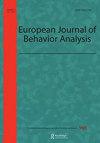Reporting treatment processes and outcomes for paediatric feeding disorders: A current view of the literature
引用次数: 3
Abstract
ABSTRACTEmpirically supported treatment for paediatric feeding disorders is behaviour-analytic, often taking place in controlled hospital settings. We evaluated reporting of treatment processes and outcomes within behaviour-analytic studies to consider recommendations for practitioners, as well as future research. Strengths of the literature were reporting of directly observed behavioural outcome data demonstrating the effectiveness of empirically supported treatment. However, there was variability in reporting aspects of the overall treatment process. With respect to multidisciplinary involvement, gaps in reporting included the frequency of involvement in assessment and treatment, as well as the roles of each discipline involved. Further, there were gaps in reporting of treatment goal progression, such as food variety, volume, texture and independence, as well as nutritional outcomes (oral intake, growth). Our findings support recommendations to improve reporting in the literature, to increase standardisation of processes and improved dissemination to the wider research community. Further, improved research reporting will increase practitioner knowledge of empirically supported treatment for paediatric feeding disorders. To this end, we provide recommendations and resources regarding multidisciplinary involvement and systematic monitoring of treatment goal progression.KEYWORDS: Treatment progress monitoringcompetencypaediatric feeding disordersavoidant/restrictive food intake disorder (ARFID)tube weaninginappropriate mealtime behaviourmulti/interdisciplinary team Disclosure statementNo potential conflict of interest was reported by the author(s).Data availability statementThe data that support the findings of this study are available from the corresponding author upon reasonable request.报告儿科喂养障碍的治疗过程和结果:当前文献的观点
临床支持的儿科喂养障碍治疗是行为分析,通常在受控的医院环境中进行。我们在行为分析研究中评估了治疗过程和结果的报告,以考虑对从业者的建议,以及未来的研究。文献的优势在于报告了直接观察到的行为结果数据,证明了经验支持治疗的有效性。然而,在整个治疗过程的报告方面存在差异。关于多学科参与,报告方面的差距包括参与评估和治疗的频率,以及所涉及的每一学科的作用。此外,在报告治疗目标进展方面存在差距,例如食物种类、体积、质地和独立性,以及营养结果(口服摄入量、生长)。我们的研究结果支持改进文献报告、提高过程标准化和改进向更广泛的研究界传播的建议。此外,改进的研究报告将增加从业人员对经验支持的儿科喂养障碍治疗的知识。为此,我们提供有关多学科参与和系统监测治疗目标进展的建议和资源。关键词:治疗进展监测能力儿科进食障碍避免/限制性食物摄入障碍(ARFID)管脱机不当进餐时间行为多/跨学科团队披露声明作者未报告潜在利益冲突。数据可得性声明支持本研究结果的数据可根据通讯作者的合理要求获得。
本文章由计算机程序翻译,如有差异,请以英文原文为准。
求助全文
约1分钟内获得全文
求助全文

 求助内容:
求助内容: 应助结果提醒方式:
应助结果提醒方式:


